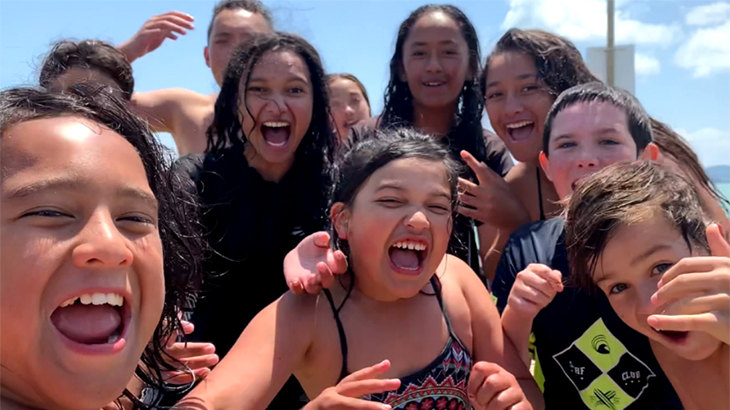Follow the water code to stay safe
After going through a three-day survival at sea, Rob Hewitt has some important advice to keep Aotearoa safe in the water.
Ex-Navy ships diver Rob Hewitt knows a thing or two about staying safe in the water. He somehow managed to survive after being stranded at sea for 75 hours.
Rob had been on a diving trip in 2006 but got separated from his mates and was forced to spend three nights bobbing in the ocean off the Kapiti Coast before being miraculously rescued.
Rob Hewitt's story of survival
To help prevent others going through a similar ordeal, he has some useful advice that could well save your life.
“There’s a little acronym I use, which is WET – Weather, Equipment and Tell someone,” he explains.
“It applies to all water activities you’re participating in – whether it be boating, jet skiing, diving or just going to the beach with your whanau. Check the weather, make sure it’s appropriate for what you want to do and take the right equipment,” he adds.
“If you keep to those simple rules and follow the Water Safety Code, you’ll have a great time and come back to your whānau.”

Hitting the hot spots
Rob says the country’s beaches, rivers, lakes and pools are all likely to be popular spots this summer as we make the most of the sunshine after a year of pandemic-based restrictions.
Keeping a close eye on young ones will be particularly important as people flock to the water.
“If you’re going out with your kids, make sure you know where they are at all times and have flotations devices close by,” Rob says.
“The rescuer often becomes the victim – we’ve seen that multiple times throughout New Zealand.”
Having fun in the wai is a way of life for all New Zealanders and nothing beats a quick dip, a manu off the wharf, catching a wave or gathering kai.
But water can also change our lives. Last year, we helped 38,000 people deal with water-related injuries.
Life-saving knowledge
After surviving his own brush with death, Rob now works for Water Safety NZ as a Māori kaihautū (leader) and helps save lives by sharing his knowledge.
ACC lends a hand by partnering with Water Safety NZ to help raise awareness of their Water Safety Code, as well as funding swimming and water safety skills programmes.
We can also support you and your whānau if you are injured in, on or around the water.

Water Safety Code
Know how to float – If you get into trouble, float on your back with your ears in the water – this will increase your chances of survival.
Find the safest place to get in and out of the water – Take a moment to assess the conditions and look for dangers like strong currents. Places with lifeguards on duty are safest.
If in doubt, stay out – If you’re unsure about your skill level, the weather, or the water conditions, it’s better to wait for another day.
Take care of yourself and others – Always go with a buddy and tell someone your plans. An adult should be watching and within arm’s reach when children are in or near the water.
Know how to get help – If you get into trouble, raise your arm and call out for help. If you see someone who needs help, call 111 and ask for Police.
More information on the Water Safety NZ website.



